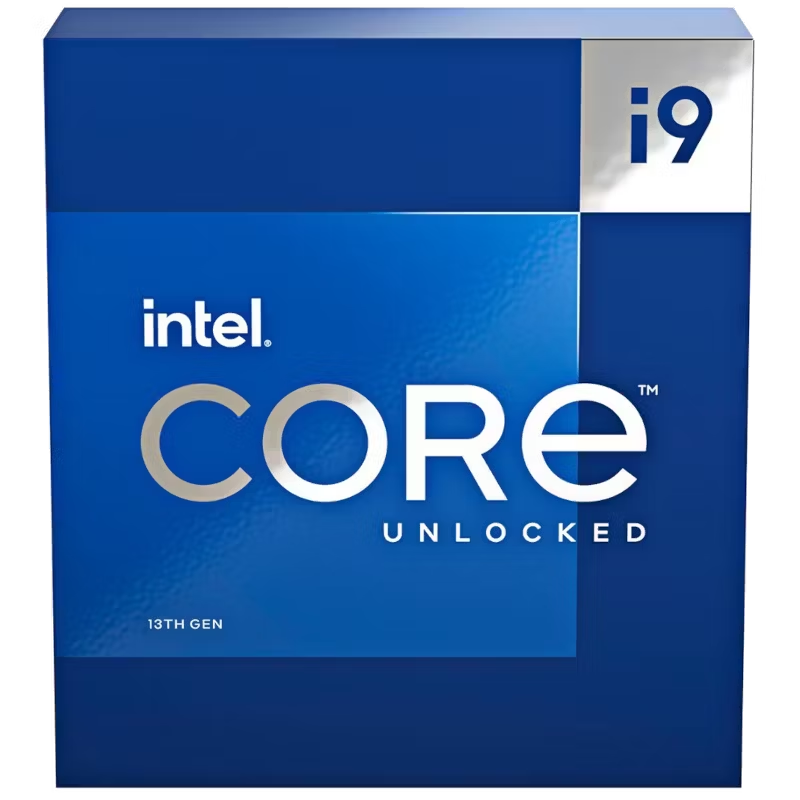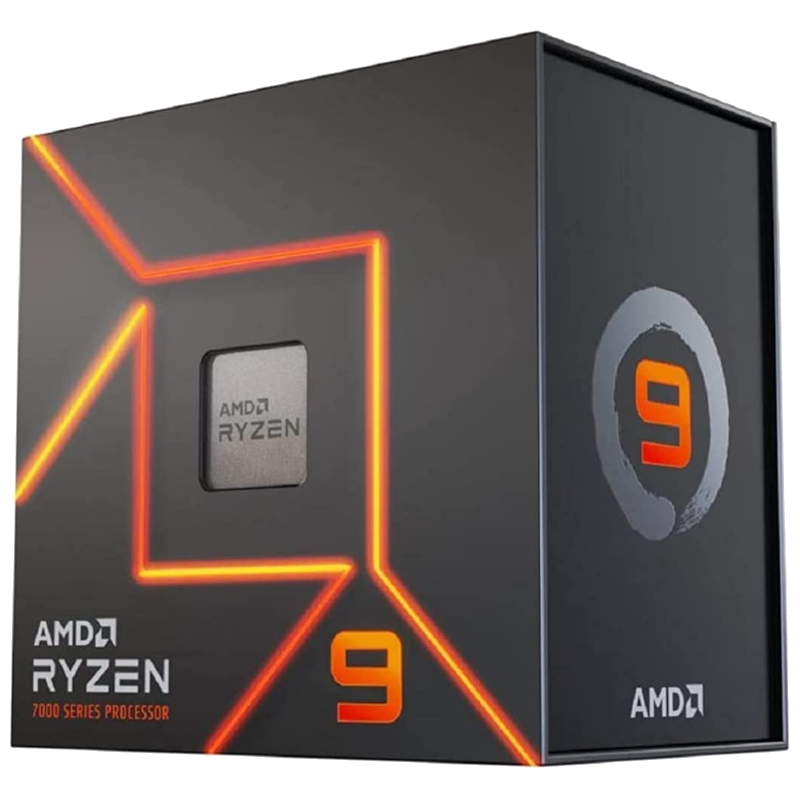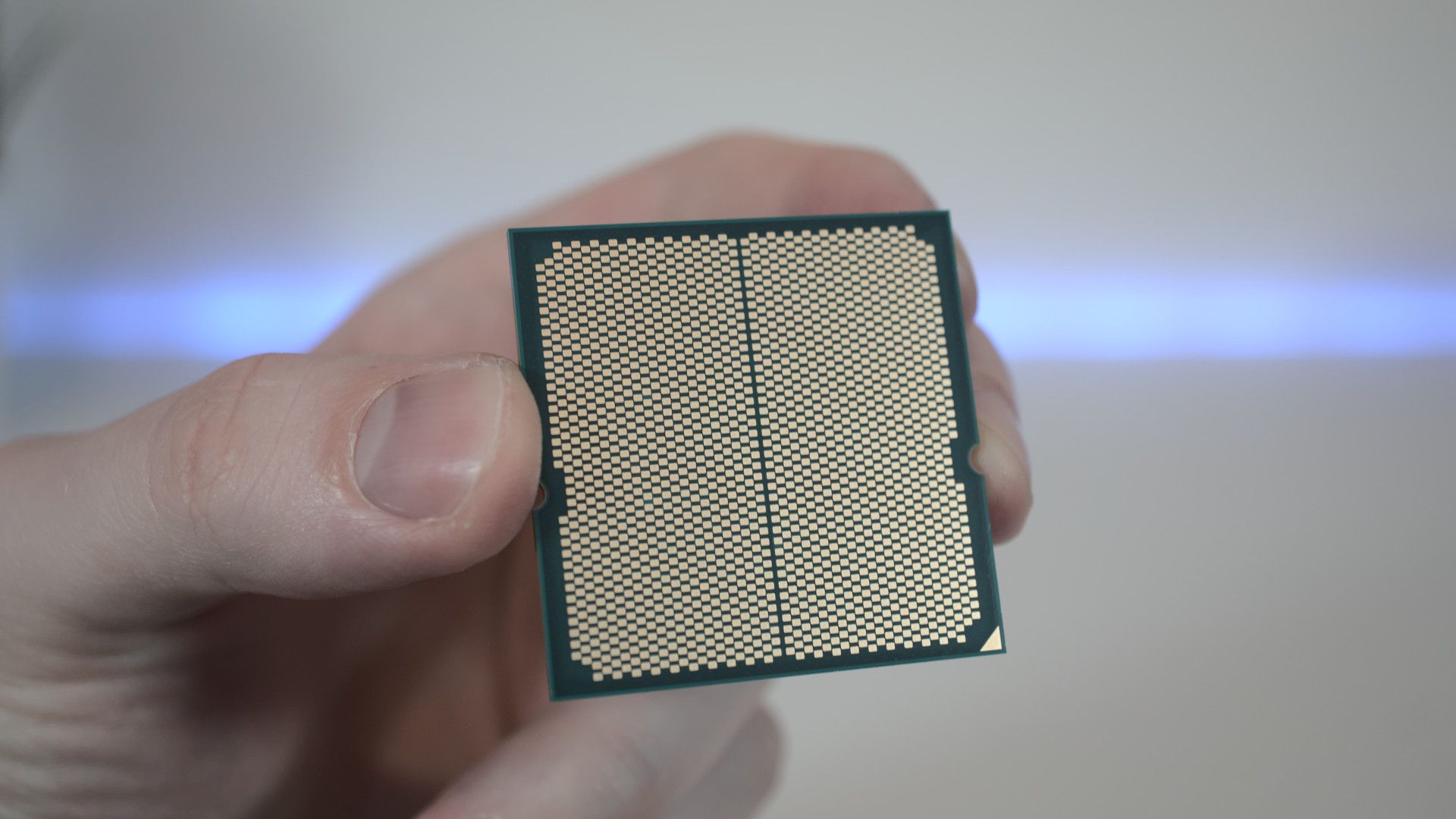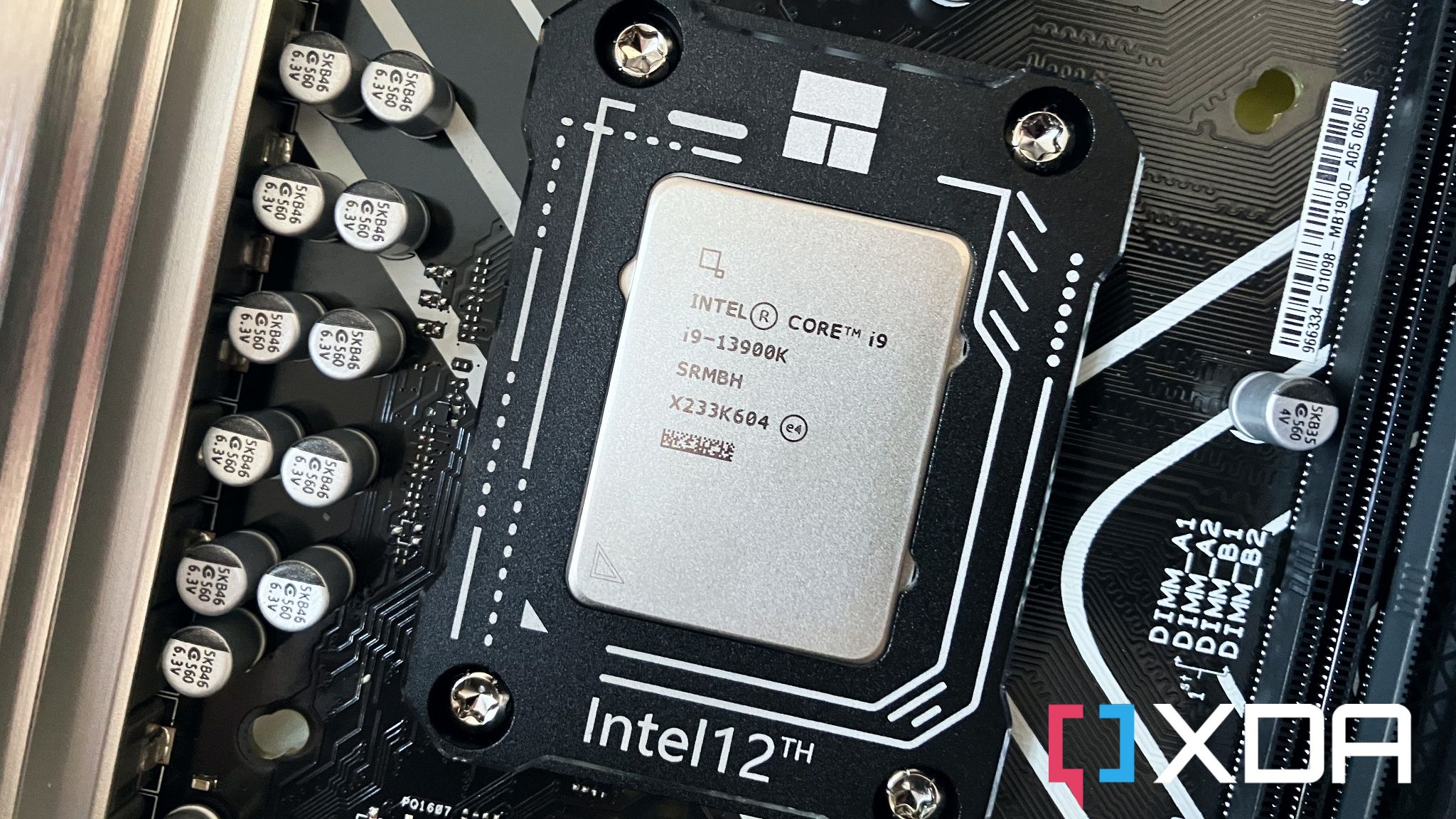-

Intel Core i9-13900K
Editor's ChoiceIntel's newest range-topper is a 24-core, 32-thread monster that devours gaming and even the most demanding workloads.
Pros- More efficient
- More cores and threads
Cons- Older manufacturing process
- More expensive
-

AMD Ryzen 9 7900X
Good AlternativeWith 12 cores, the Ryzen 9 7900X is the lighter weight flagship CPU of the Ryzen 7000 series. It's great for both multicore workloads and gaming, and while it's not as fast as the 7950X, it's quite a bit cheaper.
Pros- PCIe 5.0 and DDR5 RAM
- Excellent performance
Cons- Runs hotter
- Fewer cores and threads
The Intel Core i9-13900K and AMD Ryzen 9 7900X are two very powerful processors from team blue and team red. We've reviewed both CPUs and have extensively tested them to see the pros and cons of going with Raptor Lake or Zen 4. Looking at performance, price, and specs, we're going to use our experience to help you choose between Intel Core i9-13900K vs. AMD Ryzen 9 7900X.
-
Intel Core i9-13900K AMD Ryzen 9 7900X Cores 8P / 16E 12 Threads 32 24 Architecture Raptor Lake Zen 4 Process Intel 7 TSMC 5nm Socket LGA 1700 AM5 Base Clock Speed 3GHz / 2.2GHz 4.7 GHz Boost Clock Speed 5.8GHz / 4.3GHz 5.6 GHz RAM DDR4-3200 / DDR5-4800 DDR5-5200 PCIe 5.0 5.0 Graphics Intel UHD Graphics 770 AMD Radeon Graphics TDP 253W 170 W
Price & availability
The Intel Core i9-13900K is the more expensive processor out of the two, but you're getting more CPU for your money. It retails at around $580 at the time of publication. AMD's Ryzen 9 7900X only costs $450, which is a substantial reduction in cost whilst still offering high levels of performance. It's not the flagship processor from team red, so really we're looking at an apple and pear comparison.
Intel Core i9-13900K vs. AMD Ryzen 7900X: Different architectures and approach
Intel and AMD do things a little differently when it comes to making a CPU, and the 13th Gen Core and Ryzen 7000 series are no exception. Team blue has opted for a hybrid approach to core design, making use of efficient (E-cores) and performance (P-cores) cores to allow the processor to better handle primary and background tasks. AMD is sticking to the traditional "every core is equal" mandate.
For the Intel Core i9-13900K, this means it has 8 P-Cores to handle everything you can throw at it such as gaming and other front-end tasks, whilst the remaining 16 E-cores can be used for background tasks or to lend the P-cores a hand when needed. This required Intel to change how Windows interacts with its processors, which caused some issues at the start, but we're seeing some positive results now that the tech has matured.
Intel is able to keep up with AMD and even surpass its processors while still using an older manufacturing process. This may not sound like a massive deal on paper; 7nm vs 5nm isn't a huge leap forward, but it is on the microscopic level. This enables AMD to create far more efficient processors and push everything harder, resulting in some seriously fast clock speeds and support for other components, such as RAM. And that's before overclocking.
Intel Core i9-13900K vs. AMD Ryzen 7900X: Gaming and general performance
Performance between Intel's 13th Gen processors and AMD's Ryzen 7000 series is largely the same when comparing two equally- equipped chips. The AMD Ryzen 9 7900X may be part of the company's flagship range of SKUs, but this is the entry-level Ryzen 9, which is going up against the top dog from Intel, the Core i9-13900K. Things are close until we look at multi-core scores.
|
Cinebench R23 |
Intel Core i9-13900K |
AMD Ryzen 9 7900X |
|---|---|---|
|
Single core |
2,114 |
2,005 |
|
Multi core |
38,610 |
28,893 |
Cinebench R23 is up first and the Intel Core i9-13900K comfortably wins against the Ryzen 9 7900X, as expected. The processor has more cores (24 vs. 12) and threads (32 vs. 24), but AMD is able to keep up with single-core results, losing by just 100 points. That's a testament to AMD's use of the TSMC 5nm process, but we should also bear in mind Intel is using an older 7nm process.
|
Geekbench 5.0 |
Intel Core i9-13900K |
AMD Ryzen 9 7900X |
|---|---|---|
|
Single core |
2,154 |
2,204 |
|
Multi core |
24,997 |
18,833 |
It's a similar story with Geekbench, however the AMD Ryzen 9 7900X actually beats the Intel Core i9-13900K in single-core tests, but only just. 3DMark's Time Spy Extreme CPU score will show which is better for gaming, and it's clear the Intel Core i9-13900K takes the win.
|
3DMark |
Intel Core i9-13900K |
AMD Ryzen 9 7900X |
|---|---|---|
|
Time Spy Extreme (CPU score) |
12,547 |
9,419 |
These synthetic benchmarks aside, you'll not notice much of a difference between the two processors, unless you're planning to use the best graphics cards or need a capable CPU for enthusiast or workstation use.
Which CPU is right for you?
The Intel Core i9-13900K is the best CPU in this comparison. It has more cores, more threads, faster clock speeds, and is capable of demolishing the AMD Ryzen 7900X in multi-core tests. It's slightly more expensive but is well worth the price if you're able to make the most of the available performance. Being able to save a little and reuse your old DDR4 RAM is a bonus.

Intel Core i9-13900K
Intel's newest range-topper is a 24-core, 32-thread monster that devours gaming and even the most demanding workloads.
AMD's Ryzen 9 7900X is the entry point for X processors and is the better buy out of the two chips if you want the best value. That said, even when preferring the Ryzen 9 7900X over the Core i9-13900K in terms of value, we'd recommend the AMD Ryzen 9 7900 non-X version since you could easily overclock it to meet the performance of the 7900X and save even more money in the process.

AMD Ryzen 9 7900X
With 12 cores, the Ryzen 9 7900X is the lighter weight flagship CPU of the Ryzen 7000 series. It's great for both multicore workloads and gaming, and while it's not as fast as the 7950X, it's quite a bit cheaper.


